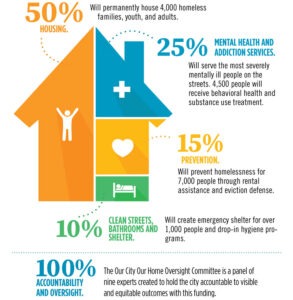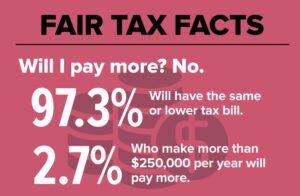November 22, 2010; Source: Stateline.org | The issue of extending some, all, or none of the Bush-era tax cuts looks relatively simple if limited to a federal level analysis. Should taxes be raised on millionaires or will a millionaire’s tax weaken the economy? Should the estate tax be reinstated? Should middle class tax cuts be maintained?
These questions aren’t so complex until you factor in the impact of federal tax changes on state tax revenues. According to a report from the Tax Foundation, most states whose income tax systems “piggyback” off of federal income taxes will automatically get more revenue if the Bush tax cuts expire. This is not true for all states, particularly the handful of states that allow federal income taxes to be deducted from state taxes. For those states, higher federal tax payments will mean higher state deductions and therefore lower state tax revenue collections. It’s hardly even that simple.
Six states—Alabama, Iowa, Louisiana, Missouri, Montana, and Oregon—allow for the deduction of federal taxes, so their revenues will go down as federal taxes increase, even if the increase is limited to high income taxpayers. Changes in what and how much the federal government allows taxpayers to deduct toward reaching their adjusted gross income also affects state tax revenues. The reinstatement of the personal exemption phase out and the Pease provision phase out of some itemized deductions for higher income taxpayers will also change the federal revenue picture as it affects state revenues.
Sign up for our free newsletters
Subscribe to NPQ's newsletters to have our top stories delivered directly to your inbox.
By signing up, you agree to our privacy policy and terms of use, and to receive messages from NPQ and our partners.
Then again, federal taxpayers are frequently allowed to deduct state and local sales taxes and real estate taxes from their federal tax payments, essentially a matter of the federal government subsidizing state and local governments. States that rely heavily on sales taxes, for example, would be hit hard if the federal deduction for state sales taxes is not renewed. Five states don’t even tax wages—Washington, Tennessee, Nevada, South Dakota, and Florida—so the piggybacking of some federal tax rates on states will affect these states differently.
Add in five more states heavily dependent on sales tax revenues—Louisiana, Hawaii, Arkansas, Arizona, and Mississippi—and you have states that would be adversely affected if federal deductions for state sales taxes are limited or ended. The picture for state tax revenues—and the moneys that states will have at their disposal to put into nonprofit contracts—is going to be affected by federal tax decisions up, down, or neither.—Rick Cohen













